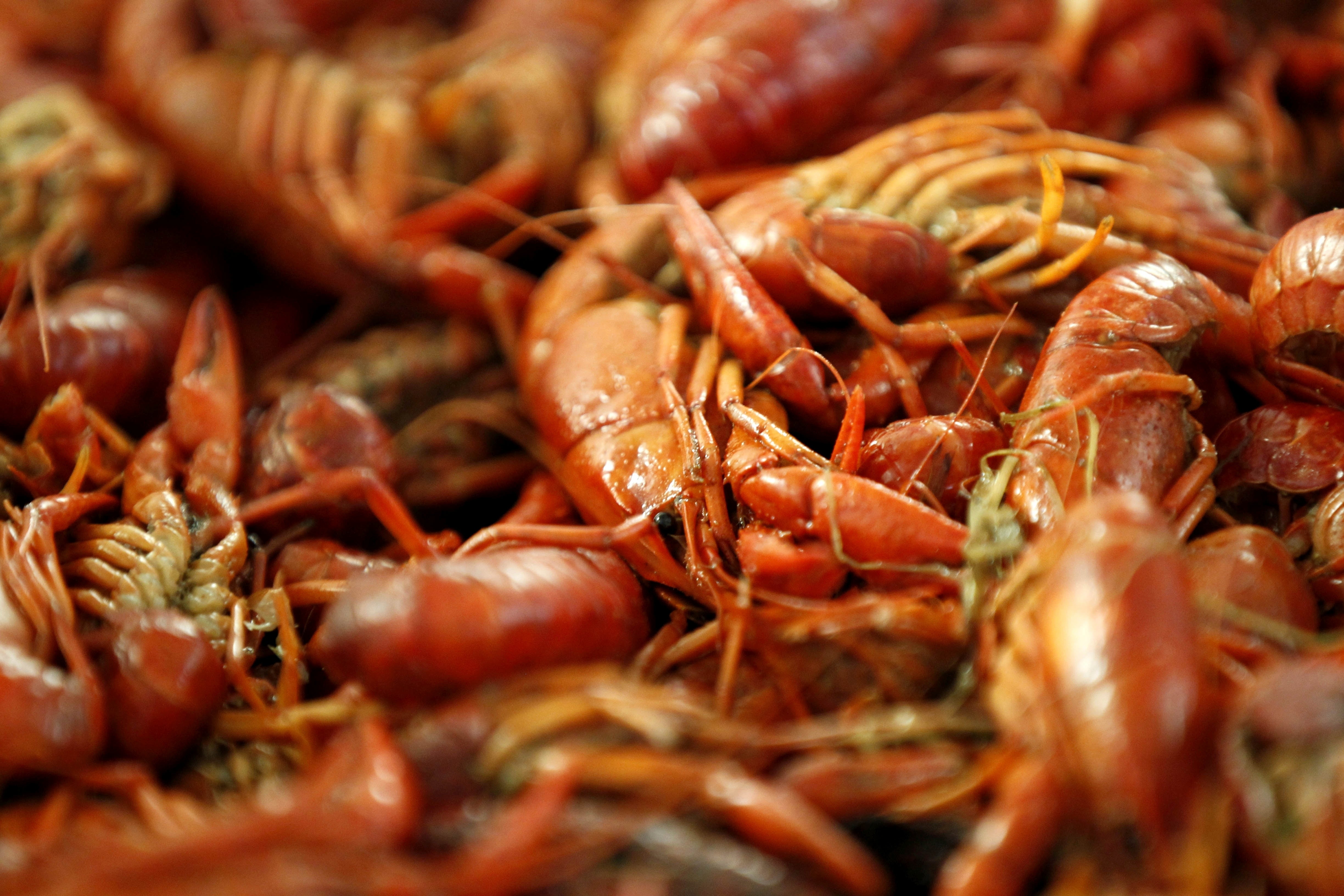Drought pinched Louisiana's crawfish harvest, but mudbug fans are weathering the shortage
Louisiana crawfish are in demand despite a shortage of the mudbugs driven by last summer’s drought, extreme heat, saltwater intrusion on the Mississippi River and a hard winter freeze

Your support helps us to tell the story
From reproductive rights to climate change to Big Tech, The Independent is on the ground when the story is developing. Whether it's investigating the financials of Elon Musk's pro-Trump PAC or producing our latest documentary, 'The A Word', which shines a light on the American women fighting for reproductive rights, we know how important it is to parse out the facts from the messaging.
At such a critical moment in US history, we need reporters on the ground. Your donation allows us to keep sending journalists to speak to both sides of the story.
The Independent is trusted by Americans across the entire political spectrum. And unlike many other quality news outlets, we choose not to lock Americans out of our reporting and analysis with paywalls. We believe quality journalism should be available to everyone, paid for by those who can afford it.
Your support makes all the difference.
Feel free to change the headline. Stephen Smith is finishing video. Additionally, new crawfish photos should be uploaded soon. For now I am using filers.
In Jeff Pohlmann's 39 years of selling crawfish in Louisiana he has never seen the industry face such an abysmal shortage of “mudbugs.”
Driven by last summer's drought, extreme heat, saltwater intrusion on the Mississippi River and a hard winter freeze, the nation’s top producer of crawfish harvested a fraction of what is typical of the tiny crustaceans in a season — with tens of thousands of acres lost or failing. And while Louisianans are still buying and selling crawfish, a staple in Gulf Coast seafood boils and a part of Louisiana's “way of life,” the crisis can be felt across the state.
“I’ve never experienced this before and it hits you in the pocketbook,” said Pohlmann.
At the annual Louisiana Crawfish Festival in St. Bernard Parish, fans chowing down on crawfish pasta, bread, pies and etouffee said the crustaceans have been limited so far this season. Some said they have yet to attend a crawfish boil, popular during Lent when many in the heavily Catholic south Louisiana seek alternatives to meat. Pounds of the freshly cooked mudbugs with corn and potatoes are poured onto communal tables.
High prices have meant that “nobody has really been boiling,” said Sara Garcia, a Louisiana resident who often attends the festival.
Despite spring rain and the crawfish shortage, vendors at the festival were slinging droves of Styrofoam boxes filled with tasty red crustaceans, fixings and dipping sauce. However, many noted that the prices for a pound of mudbugs were higher than usual, which has been evident across the state.
Around this time last year, the cost for a pound of boiled crawfish in Louisiana was between $3 to $5. While prices this year have slowly decreased since the start of the season, they still range from around $6 to $10 per pound, based on crawfish price indexes tracked by local news stations and vendors. Other places simply don’t have crawfish available at all.
But the shortage isn't just hitting customers where it hurts. Pohlmann, who owns Today’s Ketch Seafood & Restaurant in Chalmette, said crawfish sales are 30% of what he normally sees.
“When you look at the farmer and retailer, and I know the poor consumer wants to eat it, but we go to work to make a living just like everybody else does. So, unfortunately, prices have to be a little higher than normally what we’re accustomed to,” Pohlmann said.
Louisiana generates anywhere from 175 million to 200 million pounds of crawfish — contributing $500 million to the state’s economy annually, according to Gov. Jeff Landry’s office. The Louisiana State University’s Agriculture Center estimates the potential losses to the state’s crawfish industry to be nearly $140 million.
Earlier this month, Landry issued a disaster declaration for the industry, which is the legal underpinning that assists in securing federal resources.
Typically one of the wettest states in the country, Louisiana saw some of its driest conditions last year. The soil where crawfish burrow to lay eggs dried out leading to a dismal harvest this season.
“You don’t mess with Mother Nature, and that’s why you’re seeing these high prices,” Pohlmann said. “No rainfall last year and drought, and we’re paying for it today.”